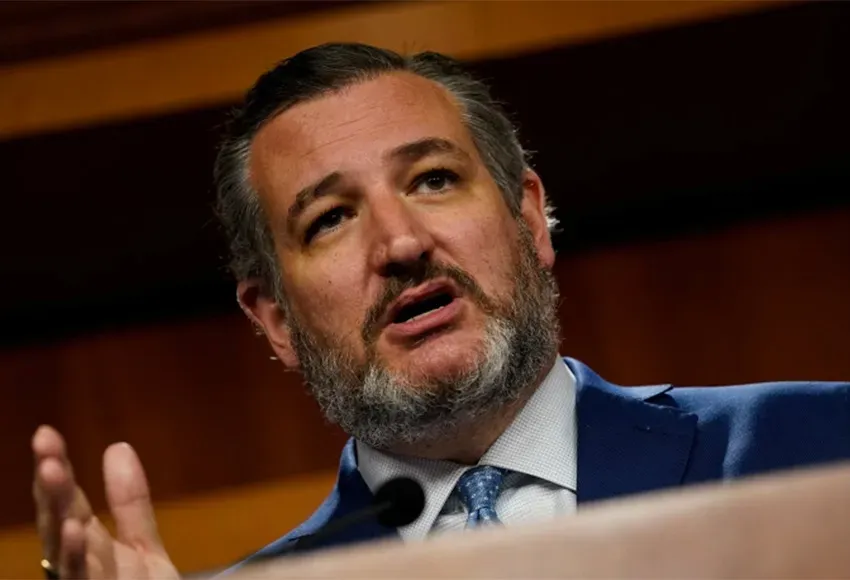Texas Senator Ted Cruz says the U.S. Supreme Court should have left the issue of same-sex marriage up to individual states to decide, as it has done with abortion.
Cruz made the remarks in a July 16 interview with right-wing pundit Liz Wheeler. He later shared clips from their talk on his YouTube channel.
Wheeler asked him if he felt the landmark Obergefell ruling of 2015, which legalized same-sex marriage across the U.S., was now vulnerable, following the high court's reasoning in its decision striking down Roe v. Wade.
"Obergefell, like Roe v. Wade, ignored two centuries of our nation's history," Cruz answered. "Marriage was always an issue that was left to the states.
"If you succeeded in convincing your fellow citizens, then your state would change the laws," he continued. "In Obergefell, the court said, 'No, we know better than you.'
"And now every state must sanction and permit gay marriage. I think that decision was clearly wrong when it was decided. It was the court overreaching."
Last month, Cruz welcomed the reversal of Roe v. Wade as a "massive victory for life."
Cruz shares the view of Supreme Court Justice Clarence Thomas, who wrote in his concurring opinion in the abortion case that the court should look again "at Griswold, Lawrence, and Obergefell," prior rulings that established rights to contraception, same-sex sexual relations, and marriage equality.
In a portion of his interview with Wheeler that he did not share on YouTube, Cruz went on to say he saw many practical obstacles to actually reversing Obergefell.
"You've got a ton of people who have entered into gay marriages, and it would be more than a little chaotic for the court to do something that somehow disrupted those marriages that have been entered into in accordance with the law," he said.
"I think that would be a factor that would, would counsel restraint, that the court would be concerned about. But to be honest, I don't think this cCourt has any appetite for overturning any of these decisions."
He added that Roe v. Wade was different – – and more significant –– than the other court decisions cited by Thomas, in that it touched on "the creation of a human life."


